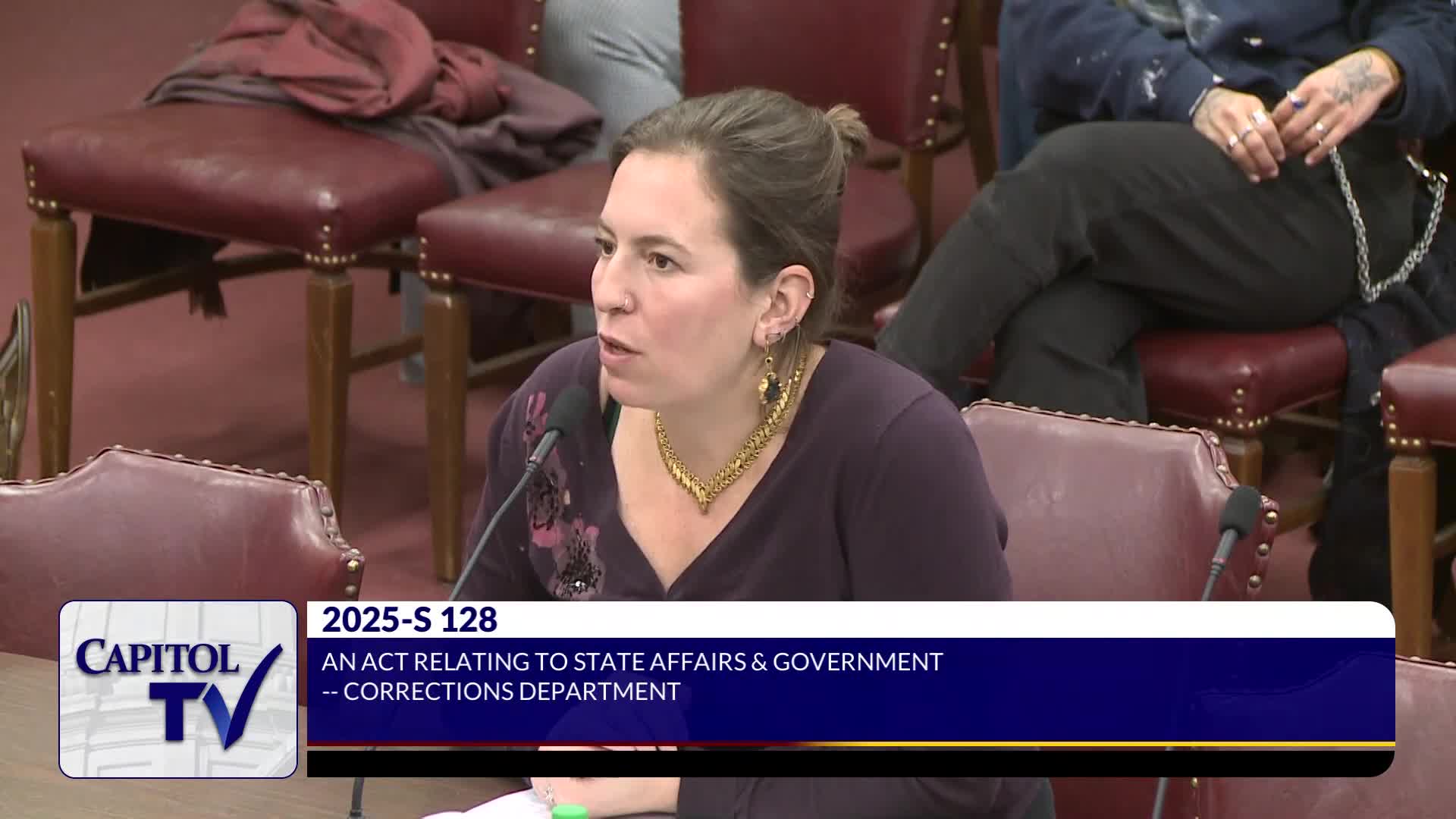Article not found
This article is no longer available. But don't worry—we've gathered other articles that discuss the same topic.
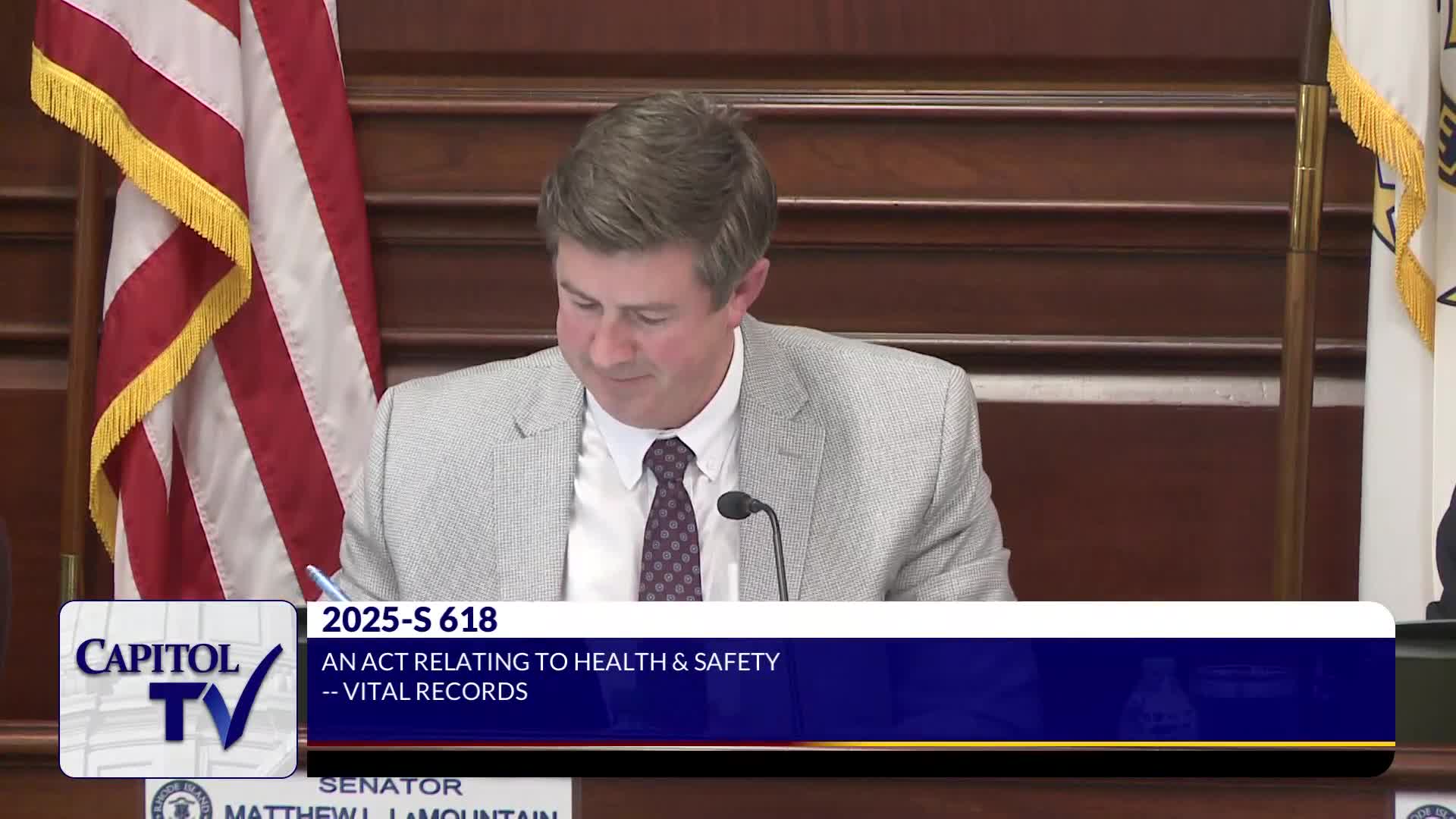
Senate advances bill to provide free birth certificates to people leaving prison
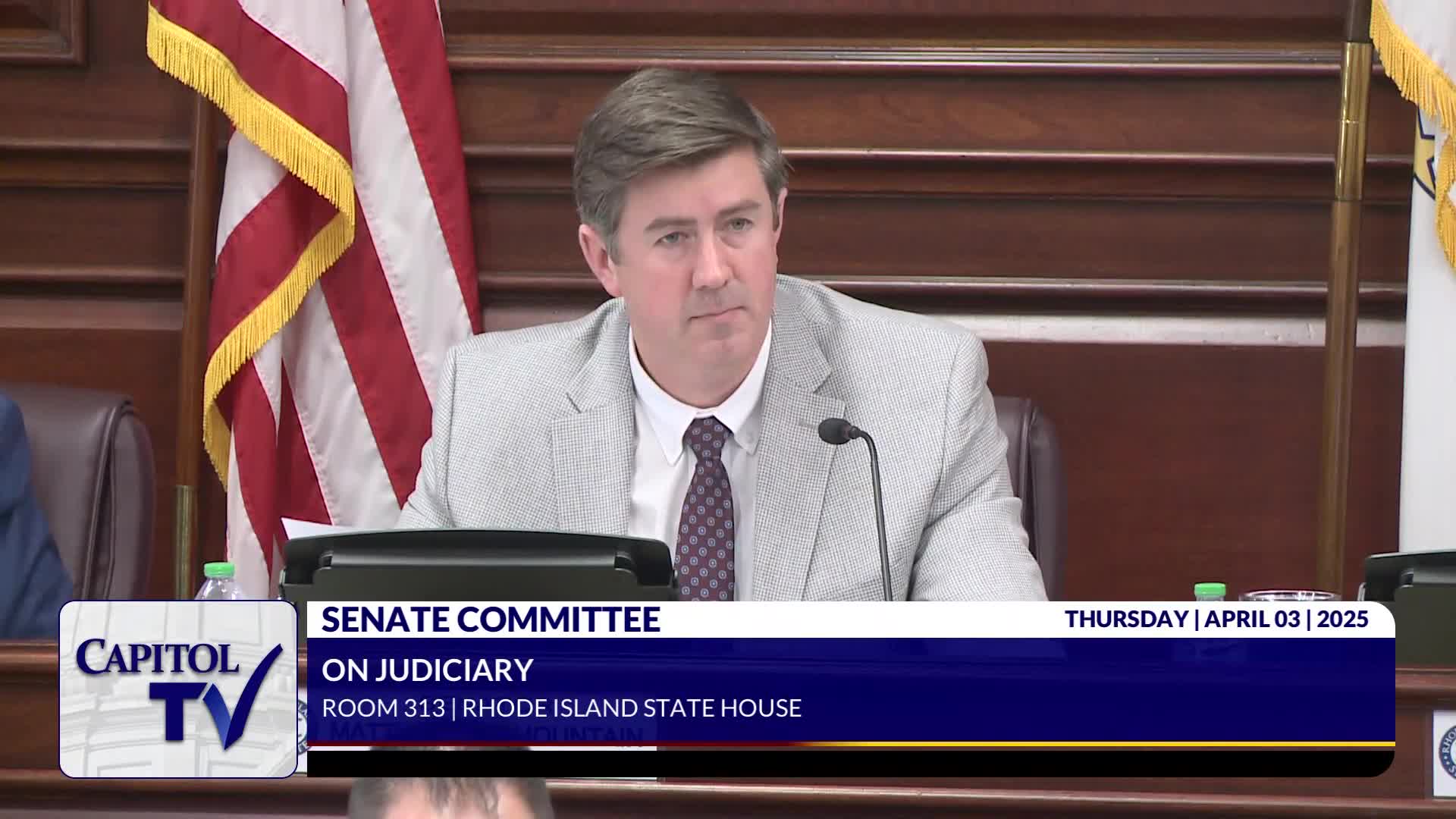
Committee weighs making unauthorized transfer to juvenile training school a crime after DCYF request
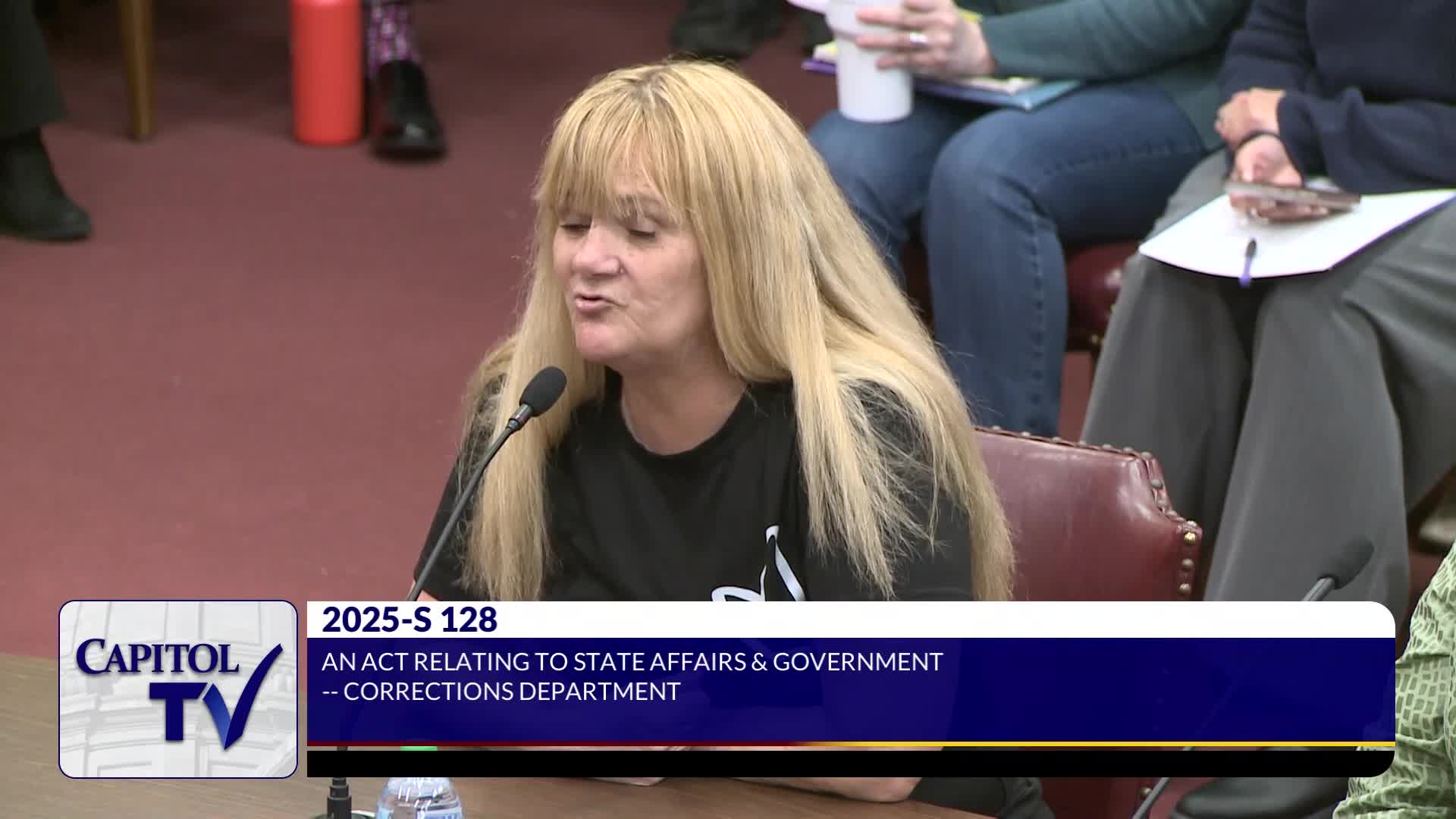
Community groups press lawmakers to end ICE contracts at Wyatt Detention Center; committee holds bill
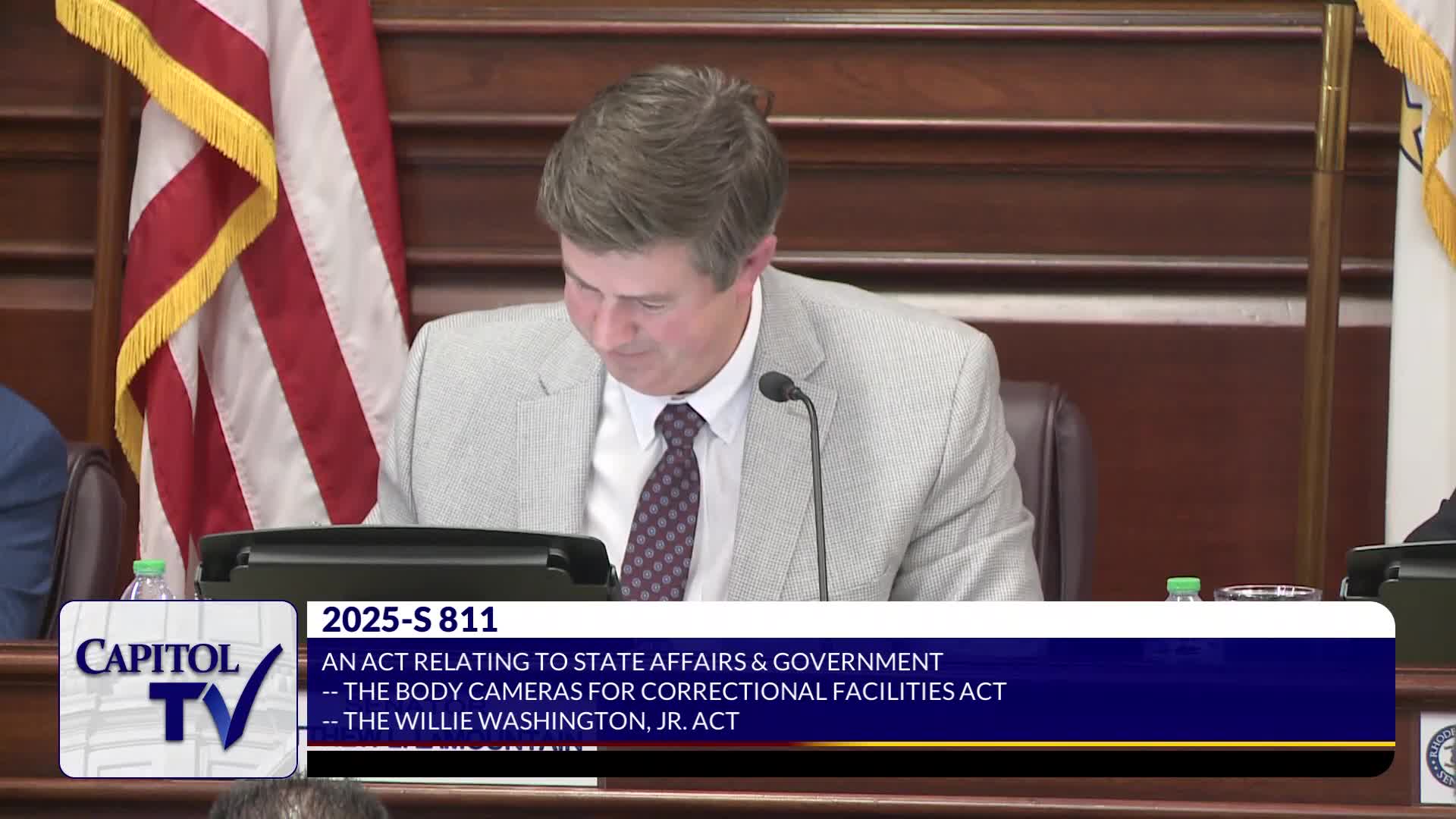
Family and advocates push Willie Washington Jr. Act to require body cameras in Rhode Island correctional facilities
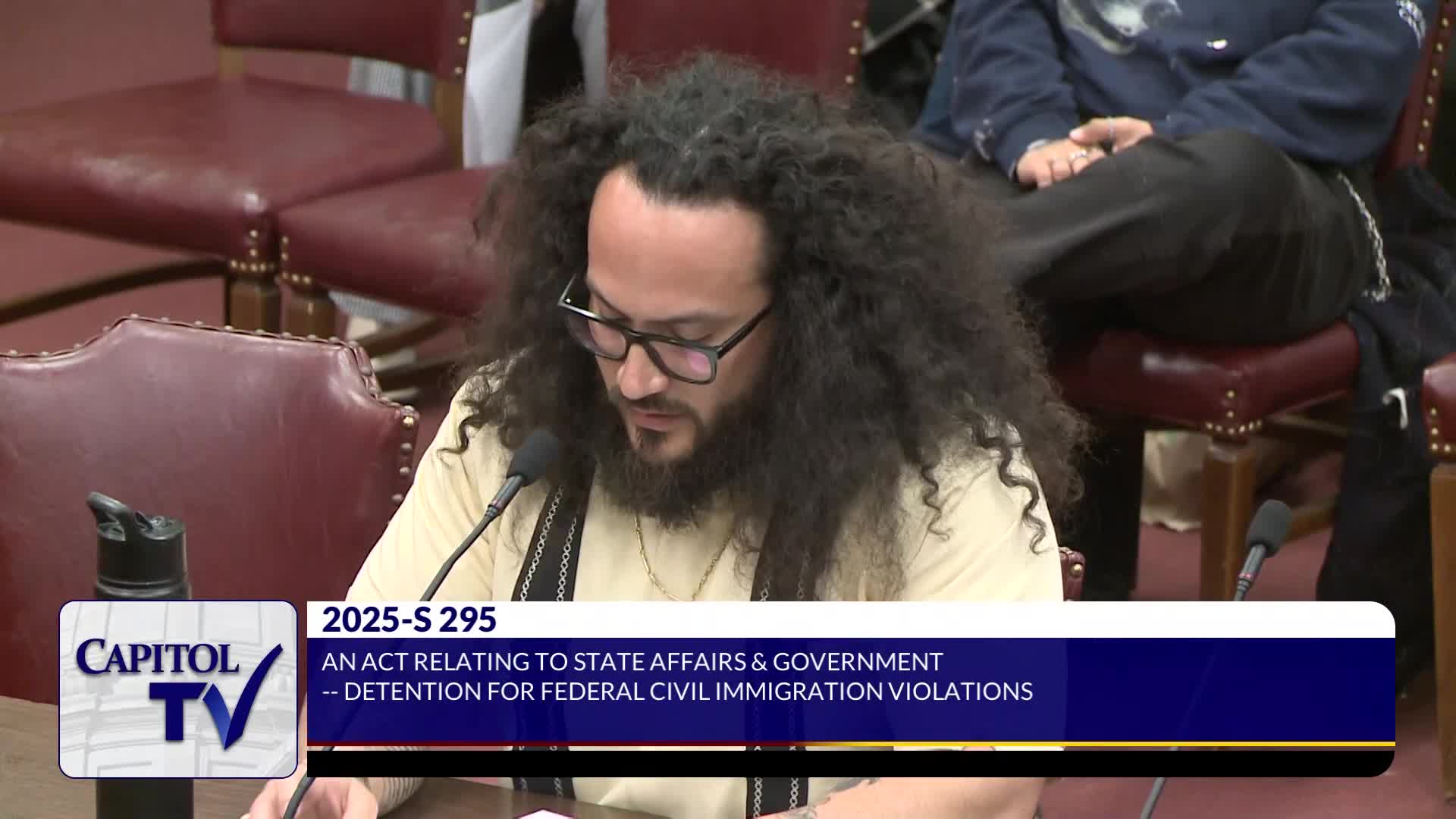
Lawmakers and advocates debate oversight and limits for restrictive confinement at ACI
